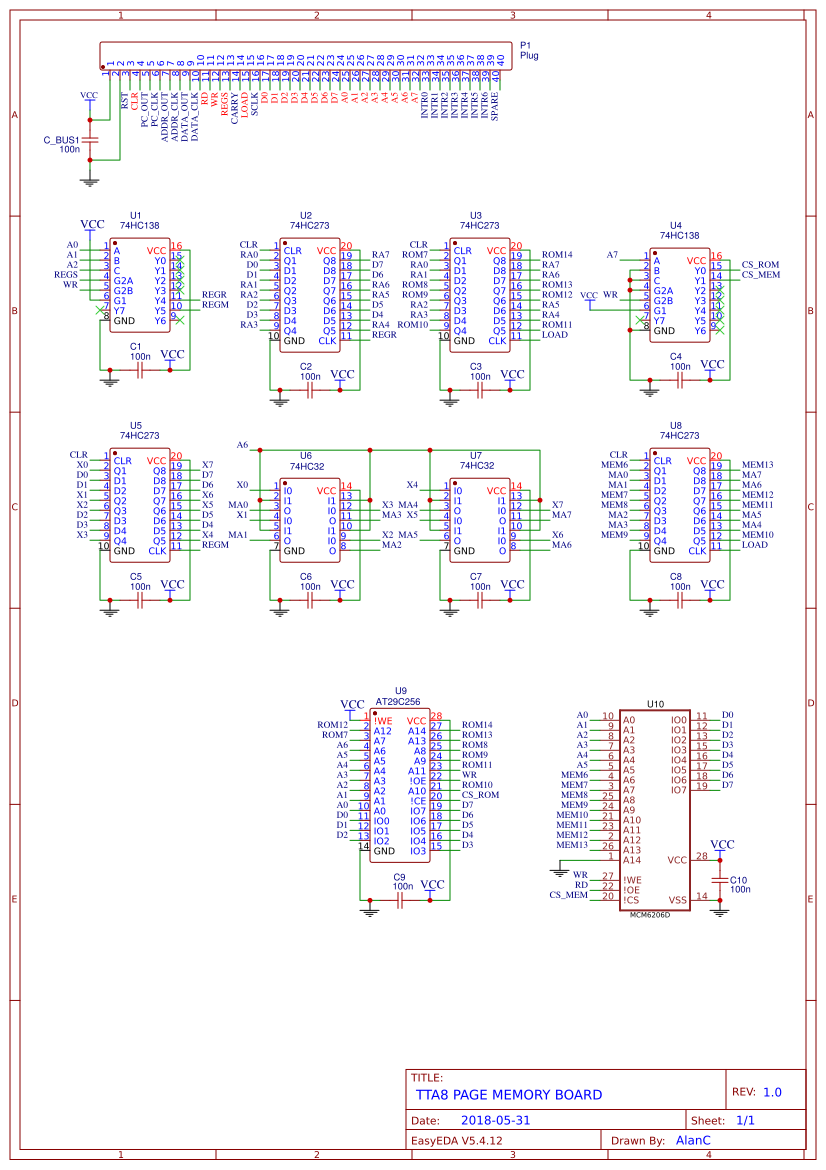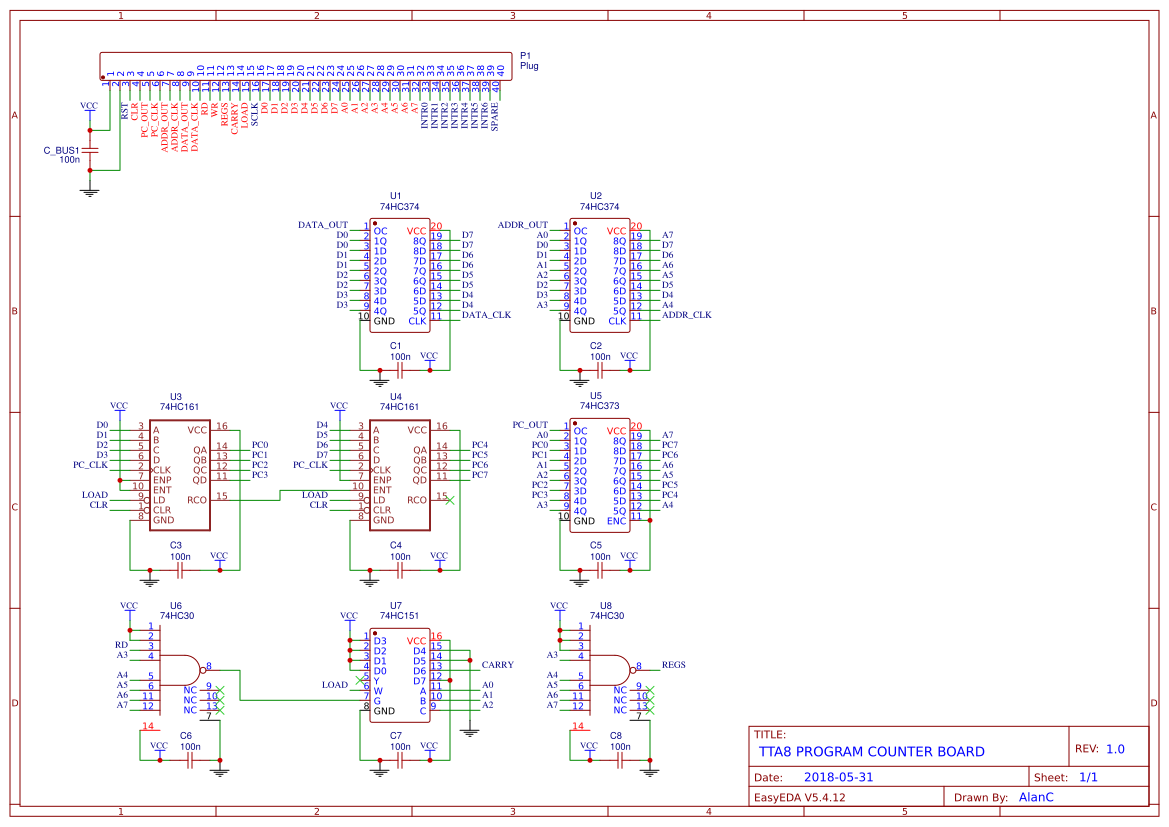Second Pass Emulator
The second pass recoginises the I/O or ports are accessed via:
- REGA - the port address
- REGD - the port read/write
The third pass will add paged RAM and ROM.
Run out of room
Run out of room for the monitor, well I ran out of room a while ago when I "stubbed" the delay routine. Anyway I need to push some code onto ROM page 1 (i.e. the second page).
One of the monitor design "features" was to hide the ROM and RAM page registers from the front panel.
The problem is you cannot manually change the ROM page with monitor running.
The monitor should really have no reason to view the ROM code (on another ROM page) in any case.
Changing the RAM page would be okay, however. But the current design does not allow you to read the page registers and I have no pull ups (or pull down resistors on the Databus. So even changing RAM page is messy.
One way to read/write from/to a register and then copy that register to the RAM page at the end of the monitor rountine. Extra code is the cost for tis patch.
Checking the Page Memory Board schematic:

I need to add three chips (a decoder and two registers) for a total of 13 chips (crowded).
May be better to split the board into Page ROM and Page RAM.
I should have added pull up resistors to the Program Counter Board:

It is no big deal, you should not be using the monitor to probe around in this area anyway as it will result in strange things happening as it may interfere with the monitor.
Progress
Anyway, the monitor code is progressing, but ever so slowly.
Version 3 will consider ROM/RAM paging (and require a significant code rework).
Okay I have a plan!
First what was the problem? Oh yeah, two paging systems and how to bring them together for the Interpreter.
Basically an "Instruction Address" has the format:
- Address
- Page
But the Page may be ROM or RAM or the static System area.
The answer is to look at the Address:
- 11XX XXXX System area (registers and static RAM)
- 10XX XXXX RAM Page
- 0XXX XXXX ROM Page
The code would look like this:
POINTER ; Get the Address
REGP
_64 ; Test if 11xx xxxx (System area)
REGQ
_EXIT ; Exit if System area
JC
_128 ; Text if 10xx xxxx (RAM Page area)
REGQ
_NEXT ; Goto RAM Page
JC
PAGE ; No, its ROM Page (0xxx xxxx)
ROM
_EXIT
JMP
_NEXT:
PAGE
RAM
_EXIT:
So expensive for the Interpreter but what choice do I have? Without the issue of Page addressing the Interpret would look like this (5 machine instructions or 10 bytes):
INTERP IP ; SAVE IP
POINTER
IP ; INC IP
REGP
_1
REGQ
ADD
IP
_246 ; ^POINTER
JMP
With ROM Paging ONLY (no Address decoding) it would look like this (8 machine instructions):
INTERP IP ; SAVE IP
POINTER
IP ; INC IP
REGP
_1
REGQ
ADD
IP
IP ; GET ROM PAGE
ROM
IP ; INC IP
REGP
ADD
IP
_246 ; ^POINTER
JMP
With Address decoding (17 machine instructions):
INTERP IP ; SAVE IP
POINTER
IP ; INC IP
REGP
_1
REGQ
ADD
IP
IP ; GET ROM PAGE
PAGE
; PAGE ADDRESS DECODING
POINTER ; GET ADDRESS
REGP
_64
REGQ
_EXIT ; SYSTEM AREA
JC
_128
REGQ
_RAM ; RAM PAGE
JC
PAGE ; SET ROM PAGE
ROM
_EXIT
JMP
_RAM PAGE ; SET RAM PAGE
RAM
_EXIT _1 ; RESTORE REGQ
REGQ
; CONTINUE WITH INTERPRETER
IP ; INC IP
REGP
ADD
IP
_246 ; ^POINTER
JMP
If you find the code above incomprehensible then you can understand why micro-coding is so slow and why an Interpreter is so important.
AlanX
 agp.cooper
agp.cooper
Discussions
Become a Hackaday.io Member
Create an account to leave a comment. Already have an account? Log In.